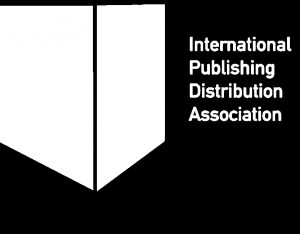Monika Kolb has been the managing director for 14 years at Mediacampus frankfurt, as well as the head of the educational department of the German Booksellers and Publishers Association. She presented in Readmagine 22 a whole vision of this prestigious school for the publishing industry during the session devoted to the training and educational strategies for the future of publishing under the title: “Reskilling, upskilling (trends in training for the publishing)”.
The mediacampus frankfurt has a long tradition and was founded in 1946 as a vocational training school. Since then, thet have developed into the main vocational education institution for the book and media branch in Germany. This school offers educational programs from career beginners to long-term professionals. In Kolb’s own words: “That means in particular, we create a talent pool for the entire German-speaking book industry. Nearly every professional in the book industry has been to the campus at least once in their professional lifetime, be it for educational training or for furthering education seminars”.
In fact, around 4.000 participants take part in their programs every year, either in person or via distance learning.
The users of this training courses are booksellers, retail sales professionals, managing assistants in publishing (digital and print) and retail professionals in e-commerce.
The programs include furthering education programs at the bachelor level. For example, mediacampus frankfurt s is the sole furthering education provider for book retailers and managing assistants in publishing (digital and print) in Germany.
Additionally, they provide seminars on campus, in-house trainings wherever their partners are based, conferences, distance learning courses, as well as personal coaching and consulting in entrepreneurial strategies and organizational development.
With about 100 seminars per year their program covers all fields of publishing and bookselling, from production to sales and business development, from basic classes to management courses and soft skill trainings. Based on these seminars mediacampus frankfurt develop customized in-house trainings for the clients and partners, council and support them through change processes and strategic business development workshops such as:
- Team building
- Business model development
- Implementing visions and corporate culture
- Strategic sales trainings
- Agile project management for publishing projects
- Target group marketing
Digital learning has always been a key aspect of mediacampus frankfurt, and not just since the Covid-19 crisis. There is a platform that gives the trainees the opportunity to choose from various learning offers and contents in order to follow their individual, self-paced learning needs.
The name of this platform is “campus2go” and it includes an e-learning platform, a large supple of lesson scripts, an integrated evaluation tool, a forum for mutual exchange and embedded video courses (in the last two years, they produced more than 80 learning videos on all subjects of the book trade and publishing).
Providing vocational and furthering education programs does not come without challenges. The current challenges that face the German book market are diverse, but Kolb decided to focus on three core topics:
- “There is a dramatic shortage of skilled workers, specialists and executive managers in the book industry that fundamentally threatens the corporate success of the industry”.
- “As a result of the corona pandemic, newly hired employees have been working remotely for more than two years: So we are facing the big challenge of an adequate employee-company connection. Among other things, this situation makes it necessary to rethink, restructure and relaunch personnel development”.
- “While the topic of sustainability was still a far away goal a few years ago, today it is one of the most important goals of companies in the industry, in order to be able to do business in an economically, ecologically and socially sensible way in the future”.
The array of different services is very big and includes supporting small and large book industry companies, publishers and retailers throughout their whole change processes. As an example of this type of projects, Kolb mentioned this one: “For the leading German book retailer (Thalia) with some 450 Outlets (and which is also the second biggest market participant in the Online Sales after Amazon) we have worked in close cooperation on their company rules, future strategy models and company’s principals based on their economic goals and budget requirements. The company calls this project “Strategy & Culture 2025”. This is a very complex scheme for some 4000 employees. The goal of this process is to clearly and transparently define and communicate company aims for all stakeholders. Mediacampus has developed the implementation concept, we also moderate the workshops and discussions”.
Another example is a media house in the STM section which is doing business in many different countries and which has been highly effected by the slow down of business during the past two years of corona pandemic. Now, all employees have been back to the offices and in some way they have to reconstruct themselves in terms of their duties, competences and customer connections and self awareness in terms of changing professional circumstances: “We have managed to bring the leading figures of the company together and to define areas of improvement for in-house communication, customer communication and open questions of how to do conduct their work after the pandemic. Therefore we have provided different business cases to help them to recognize the company’s and their own personnel situation in order to improve profit goals.
The results of our workshop will be communicated by newsletters and written material to all employees to assure the best overall achievement for the media house”.
One more and last example refers to a special challenge that has come to all during pandemic. The extensive and increased use of remote work regarding technical, emotional and communication challenges. This includes labour processing and the extension of video conferences and digital needs and skills, that professionals practically had to learn overnight.
Many publishing houses have contacted mediacampus with a specific demand for training to support newly hired young professionals and new staff who had to work at home over long periods of time without any personal contact to colleagues and the management. Some of them have been in companies for more than two years without having met colleagues and management in real life. So, now mediacampus frankfurt have to train them on topics and questions like:
- What does the process of each task according to their special personal situation mean?
- What is the importance of added value in a company?
- How can we create an understanding of how individual roles play into the overarching goals of the company?
Monika Kolb stressed the fact that interaction is a key figure of success: ”Usually, people learn that by doing day-to-day work or communicating with other people in the company. The special situation of remote work has prevented many people from achieving a high level of communication and interpersonal skills. This phenomenon has appeared widely in German publishing houses. We teach those people to catch up”.
As the topic for this event was the relation between publishing and SDG Kolb referred to the main challenges and the measures undertaken by medicampus Frankfurt, specially in the case of climate action: “in this case we speak about the environmental aspects, but there are also other sustainability goals like education for everyone – for example. In Germany the demand of big retailers to force Publishing Houses into a climate balanced foot print of their productions has increased tremendously. Results in sustainability has become a KPI for in the economic price tag for companies”.
Therefore, mediacampus frankfurt has hired freelanced experts in material management, technology and specialist with recycling expertise. Sustainability has become a very complex issue on daily work in publishing houses. So, they provide seminars with them like in-house seminars, lectures and conferences.
Monika Kolb has been managing director of the mediacampus frankfurt since 2007 and is also responsible for educational work in the German Booksellers and Publishers Association (“Börsenverein des Deutschen Buchhandels”).
mediacampus frankfurt is the most important education and training company in the German book industry. The service portfolio aims towards specialists and executives in the book trade as well as book and magazine publishers. The wide range of educational programs and seminars reaches from training and study courses (for newcomers and young professionals) to seminars and further training events for managers and specialist staff (further training). A huge number of inhouse programs is also carried out at member companies, which makes mediacampus frankfurt a central place for cross-divisional integration – book trade, wholsale, book and magazine publishers – for the entire book industry.
Mediacampus frankfurt is a highly frequented meeting place for authors of all literary genres and a discussion and event location for many politicians, for example local politicians or the respective ministers of state for culture. In her role as educational Director of the German Publishers and Booksellers Association, Monika Kolb is responsible for vocational training topics such as the amendment of job descriptions, accreditation of degree programs and the linking of different educational institutions such as universities, vocational schools and independent training providers with the involvement of publishers and booksellers in Germany, Austria and Switzerland. In order to do something against the shortage of for specialists and managerial staff, the vocational training department of the German Booksellers and Publishers Association implements numerous initiatives such as a youth parliament, events at trade fairs and mentoring programs.
Monika Kolb, born in 1966, holds a degree in business administration, is a trained and experienced mediator and a systemic organizational developer. She also advises and supports national and international organizations and associations on strategic issues and accompanies specialists as well as executives through personal coaching.





